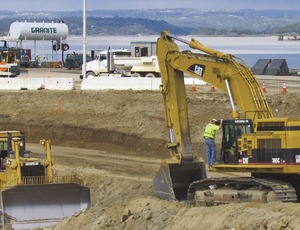


Widespread use of internal compliance and ethics programs by contractors is in its infancy, but many industry insiders believe that, like safety programs, they're here to stay. These programs are good for business because they help with productivity, risk management and recruiting young talent, experts say.
Changing decades of corporate thinking that pushed ethical and legal boundaries may take a while and be painful for some companies, but construction industry experts believe they're seeing the start of a sea change toward more ethical business practices industrywide.
 |
| PATRON |
"It's really quite striking to learn what so many construction companies are doing in terms of strong ethics compliance and integrity programs," says Steve Charney, construction attorney and chairman of New York City law firm Peckar & Abramson. "But it seems that story is talked about too little."
The construction industry's about-face on ethics is being driven by two major business trends: more meaty carrots for encouraging firms to do the right thing and bigger sticks to punish wrongdoing. One of the biggest incentives for construction companies to act ethically is the Civil War-era False Claims Act (FCA) of 1863, still on the books, which makes it illegal for federal contractors to defraud the government—a law that has gained sharper teeth during the Obama administration. In 2011, a federal crackdown on FCA compliance raked in $3 billion in violation penalties—the third-highest annual recovery to date. Also, for publicly traded companies, especially, the Sarbanes-Oxley Act accounting reform law of 2002 has also been a big impetus.
Operating ethically can attract top employee talent and strengthen the bottom line, business experts say. According to the New York City-based Ethisphere Institute, a think tank for ethical business practices, the firms on its World's Most Ethical Companies list for 2011 outperformed the S&P 500 last year by returning 45% (income plus capital gains) compared with 10% for the S&P index (Standard & Poor's and ENR are both units of the McGraw-Hill Cos.).
Having a strong moral code helps companies attract the younger generation of employees. "Generation Y is the work force of the future," said FMI's Patron. "They want to work for companies that fit their profile of what they think is a good company. They want to work for a company with a good reputation."
Construction ethics programs are also part of the larger trend toward using best practices, which is sweeping many industries in the wake of corporate wrongdoers such as Enron and the growing number of banking and finance scandals.


Post a comment to this article
Report Abusive Comment